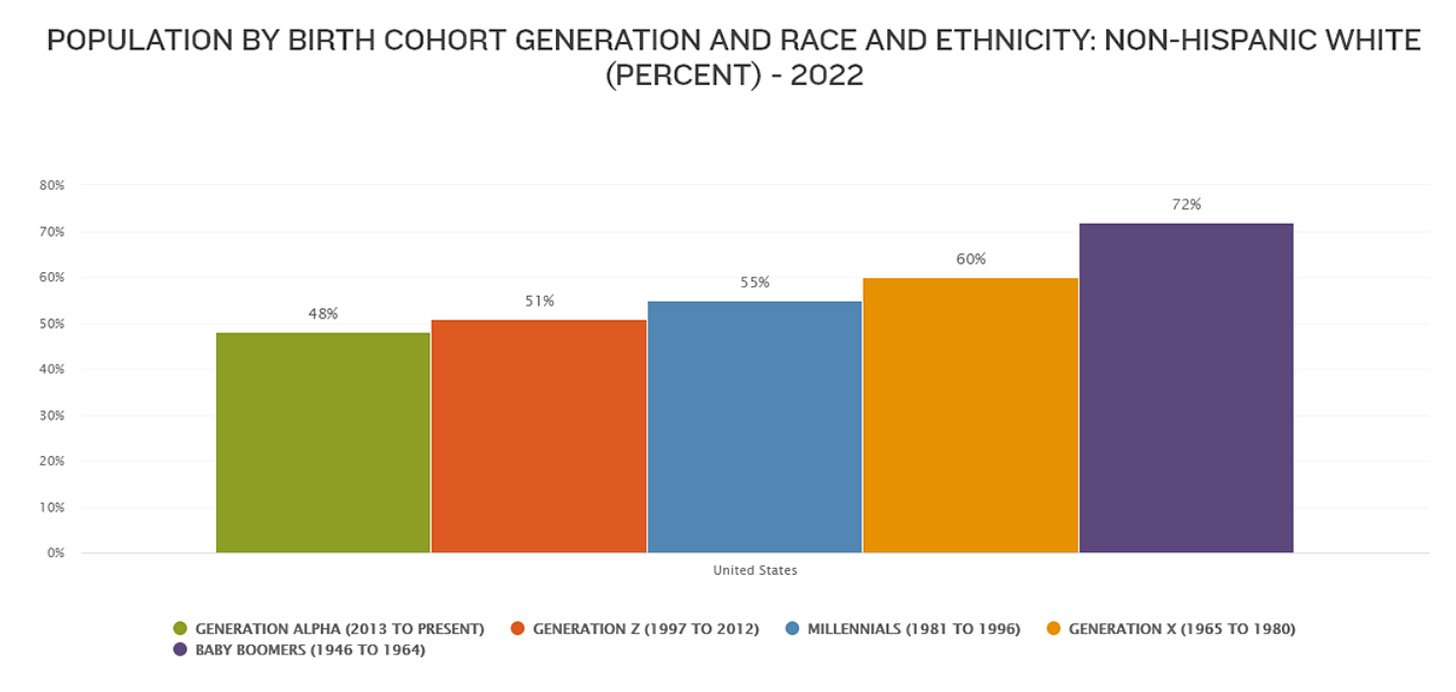Passing the Torch, From Gen Z to Gen Alpha
Make way for the emerging generational cohort shaping the future of our society, building upon the influential legacy of its predecessor
There's a new generation coming up on the block, and they're redefining what it means to be young and diverse in the digital age.
At Moonbeam, we're driven by the incredible potential and enthusiasm of our young audiences. They inspire everything we do, shaping our mission to empower the next generation through engaging and meaningful storytelling.
In this issue of our newsletter, we explore the unique characteristics and trends molding Gen Alpha, the first cohort born entirely in the 21st century.
But first—a look at the OG pioneers of change, Gen Z.
Gen Z first paved the way for what is emerging as Gen Alpha’s targeted values and experiences.
Born between 1996 and 2010 (approximately), Gen Z is characterized by their tech-savvy nature as the first digital natives to grow up in the age of smartphones, social media, and instant connectivity.
They are known for their social consciousness, activism, and commitment to diversity and inclusion.
A few fast facts about Gen Z, according to Pew Research Center:
Until Gen Alpha, they were the most racially and ethnically diverse generation we’ve ever had in the United States.
They are projected to be the last generation of Americans with a white majority.
They are on track to be the best-educated generation yet, more likely to be enrolled in college and have a college-educated parent than Millennials and Gen Xers at a comparable age (owing to changes in immigration particularly among Hispanics)
Roughly 1 in 5 Gen Z adults identifies as LGBTQ and 44% of Gen Z overall believes that gender is not binary.
And, they believe it is the responsibility of government, corporations and business leaders to tackle the pressing social issues they face.
In other words, compared to their older counterparts, they’re more conscious of the way their money, views and streams have an impact on social structures. Authenticity is key when it comes to choosing which brands they engage with.
And even though Gen Z is still young, their spending power is significant. Their current spending power is worth hundreds of billions of dollars, and as they get older, this number will only increase. Today, they spend on fashion, makeup and beauty products, technology, and their pets, focusing on well-researched, socially-conscious brand transactions largely from social media influences.
Also of note, according to a McKinsey explainer, they have less positive life outlooks, with lower levels of emotional and social well-being than older generations. The pessimism is fueled by growing global unrest, “climate anxiety,” wars and disruptions, financial crises, and educational interruptions due to the COVID-19 pandemic.
Gen Alpha is poised to expand upon the values and experiences of Gen Z.
There are a few key trends shaping Gen Alpha, whose oldest members were born in the early 2010s and whose last cohort members will be born this year.
1. Digital Immersion:
The Alpha generation kicked off shortly after Apple launched its iPad and Instagram launched its social media platform. The exposure to interactive electronic devices begins at an even earlier age than Gen Z.
Tech is integrated into every aspect of their lives from the start—smart home devices, voice assistants, and educational apps are part of daily routines, shaping how they learn, play and communicate.
Moreover, Gen Alpha is witnessing the emergence of new technologies like augmented reality (AR), virtual reality (VR), and AI-driven devices at a faster pace compared to when Gen Z was growing up. These technologies are becoming more sophisticated and integrated into their learning and entertainment experiences.
Therefore, we're thinking diversely about how we create and adapt content and IP. Younger audiences are consuming their media in a variety of ever-increasing ways, and not always using the same core drivers as previous generations for their purchasing and consumption decisions.
2. Cultural Influences:
Gen Alpha are diverse, growing up in a world where representation and inclusivity are increasingly emphasized.
Children of color represent the majority of Gen Alpha, (26% Latino/Hispanic, 16% Black, 7% Asian/Pacific Islander).
Also, with a higher likelihood of growing up in non-traditional family structures, Gen Alpha values inclusivity and diverse family dynamics.
This exposure fosters openness and adaptability from an early age.
Of note, the share of kids growing up in a single-parent family at 35% is holding steady for Alpha kids at 35%, compared to 31% in 2000. If this pattern holds, Gen Alpha kids will be more likely to live in single-parent households — and in greater numbers — than any age group before them.
It’s no secret that we believe in reflecting the diversity of the world we live in, and that includes non-traditional family dynamics.
3. Focus on Sustainability:
Sustainability has become deeply ingrained in popular culture due to Gen Z's influence. Sustainable fashion, eco-friendly products, and ethical consumption are increasingly mainstream concepts embraced by younger generations.
Gen Alpha is inheriting this cultural shift and will likely continue to prioritize sustainability in their consumption patterns and lifestyle choices.
4. Entrepreneurship / Innovation:
Generation Z has shown a strong entrepreneurial spirit, with many members starting businesses and initiatives at a young age. Perhaps due to the fact that they’ve seen multiple recessions in their young lives, they tend to embrace gig culture and take on side hustles. Nearly half (46%) of Gen Z take on gig work on top of their full-time jobs.
Generation Alpha will continue this trend, utilizing their tech-savvy skills to innovate and create new ventures that address emerging challenges and opportunities.
Perhaps most importantly, we expect that Gens Z and Alpha share a desire for authenticity and purpose in their interactions and experiences.
What does this mean for Moonbeam?
Modern thinkers like August Comte have argued that generational change is the engine behind social change.
As a diverse children’s storytelling venture, we recognize the evolving needs and aspirations of each generation.
When we consider Gen Z’s lower levels of emotional and social well-being than older generations, and how this could carry forward to Gen Alpha’s attitudes as they come of age, we’ll continue our commitment to positively influencing young minds.
Nonetheless, we celebrate the forward-thinking attitudes and inclusive values of Gen Z and Gen Alpha, and we remain steadfast in providing empowering content that nurtures creativity, fosters understanding, and of course, entertains.
Together, let's illuminate the path forward for our youngest audiences, ensuring they have the tools and inspiration to shape a brighter tomorrow.
Thanks for reading,
Jesse & Rebecca



